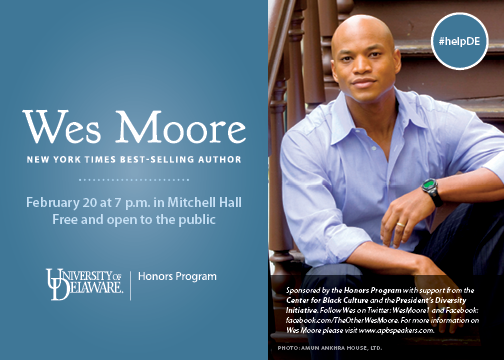by Tony Narisi and Ramya Sridharan
After reading The Other Wes Moore, I performed a Google search on my own full name, Anthony Narisi. Initially, all I received was a brief moment of existential alarm courtesy of switchboard.com’s message, “There is 0 person(s) in the US/Canada named Anthony Narisi.” However, upon further inspection, I was assured that I am indeed a person, uncovering YouTube videos of myself performing improv comedy and time sheets from my middle school track meets (quickly replacing my existential jitters with crippling angst when I found out the record I had set in eighth grade was broke only one year later.) In addition to these, I ran into a wealth of information about the Archbishop Wood High School and Albright College football programs. But the Anthony Narisi involved with these is not me. Rather, it is my cousin, born just five days after me, who was described to me in my youth as “looking just like you, except way better at basketball.”
So, is this tale of two Anthony Narisis worthy of the same pondering as that of the two Wes Moores? Well, not really. About the only thing that would come out of an examination of our two lives would be me repeatedly assuring myself that I could be athletic and coordinated and have a committed long-term relationship with a girl if I really wanted to do those things, I just don’t want—oops, there I go already.
Back to the point… Wes Moore’s story is not necessarily just a story of “One Name, Two Fates” as the front cover puts it. The Wes Moores share more than just a coincidence of names—they grew up in the same neighborhood without a father, with similar groups of peers pressuring them, and many other parallels. Rather than looking at trivial differences like those present between my cousin and me, Moore asks us to look at what can drive two people from similar backgrounds into drastically different lives. Looking at my own life, an example of a more appropriate question to ask is why was I entering the University of Delaware while the kid from up the block who I used to hang out with every day after school was entering rehab with an arrest record?
However, even this type of examination is only scratching the surface of what Moore is trying to say. After an in-depth examination of his and the other Wes’s stories, Moore comes to the conclusion that “very few lives hinge on any single moment.” This may seem to be an unsatisfactory answer, but ultimately it is the truth—an extremely complicated blend of internal and external factors, including sheer luck, acts on every person in the world at every moment, and all of these moments pile up to create the factors in one’s life. While it is impossible to save everybody, Moore argues (and I agree) that people should work to positively influence as many people as they can by sharing information and stories so that others may listen and hopefully change their ways before it is too late, as it now is for the other Wes Moore.
It could have been the other “anybody,” although, admittedly, “The Other John Smith,” sounds rather uninvitingly blasé. Moreover, I have come across two other people having the same unique ethnic name as myself and have never felt a burning need to write about them.
So, what makes this book so special? Some would ask, “What made Wes Moore want to write about his youth and the other Wes Moore’s youth and how different their lives ended up from similar roots?” I do not care about that question. That is not the correct question to ask as a reader. In fact, Wes Moore answers that question in his interview at the end of the book. Instead, I would ask, “Why did I read the book? Why couldn’t I put it down?” Neither Wes Moore could answer that question.
Truthfully, I began reading the book to procrastinate. It was the worst decision I could make. As an experienced procrastinator, this book broke me. I was trying to find moments of time to read the book, which required that I organize my schedule and actually stick to it. The story was too honest and raw. The author was too open and conversational. The characters were too memorable and relatable. I quailed under its ability to wrap me up and take me on a journey in every chapter, every sentence.
I would not give the book “two thumbs way up,” or demand that it is a “must read,” or praise it with other silly nonsense that advertisers use for every lowly chump of a book out there. Instead, I will say something that the majority of my generation will understand. This book will go on my bookshelf next to my set of Harry Potter books, and my children will read this, enough said.





